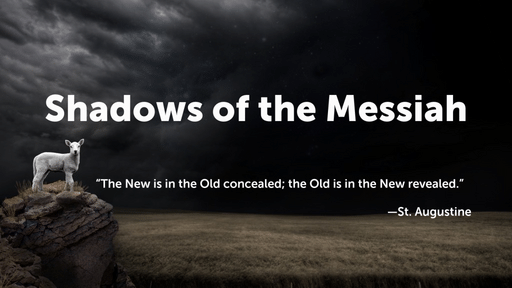SOM: The Lord will Provide

Delivered at Ukarumpa 9 July 2023
Background
Child sacrifice in the Ancient Near East (ANE)
There is evidence that human sacrifice was practiced within the Canaanite world, although we have no indications of it at Ugarit. There are a number of references to child sacrifice in the OT, especially in connection with the Canaanite god Molech in the valley of Hinnom outside Jerusalem (see Heider 1985; Day 1989), and classical sources attest child sacrifice among the Phoenicians. The most abundant evidence, however, is in the Punic world: not only do various classical authors attest its practice among the Carthaginians, but archaeological discoveries have revealed cemeteries of sacrificed children (commonly referred to by scholars under the biblical name of “topheth”) at Motya (Mozia) in Sicily, Monte Sirai, Nora, Tharros, and Sulcis in Sardinia, and at Carthage, Sousse (Hadrumetum), and Cirta (near Constantine) in N Africa.
Child sacrifice in the Old Testament
God never intended for his people to engage in human sacrifice.
1. Testing refines our faith.
Testing is a type of suffering that God uses to reveal and refine our faith.
“Testing” vs. “Tempting”
Testing gives occasion for us to display the magnificent worthiness of God.
Testing (especially sacrifice) exposes and illustrates the seriousness of sin.
2. Abraham and Isaac are examples for us today.
O that unbelievers would learn of faithful Abraham, and believe whatever is revealed from God, though they cannot fully comprehend it! Abraham knew God commanded him to offer up his son, and therefore believed, notwithstanding carnal reasoning might suggest may objections. We have sufficient testimony, that God has spoken to us by his son; why should we not also believe, though many things in the New Testament are above our reason? For, where reason ends, faith begins.
Your Heavenly Father is faithful and trustworthy. He will provide.
3. Abraham and Isaac provide us an earthly picture of our Heavenly Father and the Son.
Conclusion
You say you believe; you talk of free grace and free justification: you do well; the devils also believe and tremble. But has the faith, which you pretend to, influenced your hearts, renewed your souls, and, like Abraham’s, worked by love? Are your affections, like his, set on things above? Are you heavenly-minded, and like him, do you confess yourselves strangers and pilgrims on the earth? In short, has your faith enabled you to overcome the world, and strengthened you to give up your Isaacs, your laughter, your most beloved lusts, friends, pleasures, and profits for God? If so, take the comfort of it; for justly may you say, “We know assuredly, that we do fear and love God, or rather are loved of him.” But if you are only talking believers, have only a faith of the head, and never felt the power of it in your hearts, however you may bolster yourselves up, and say, “We have Abraham for our father, or Christ is our Savior,” unless you get a faith of the heart, a faith working by love, you shall never sit with Abraham, Isaac, Jacob, or Jesus Christ, in the kingdom of heaven.
